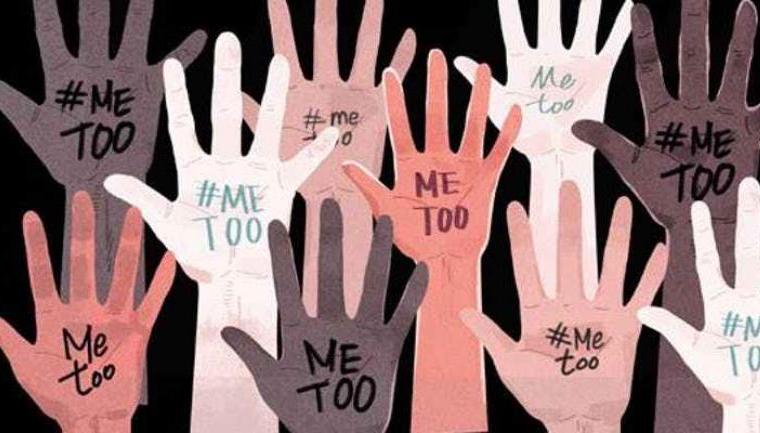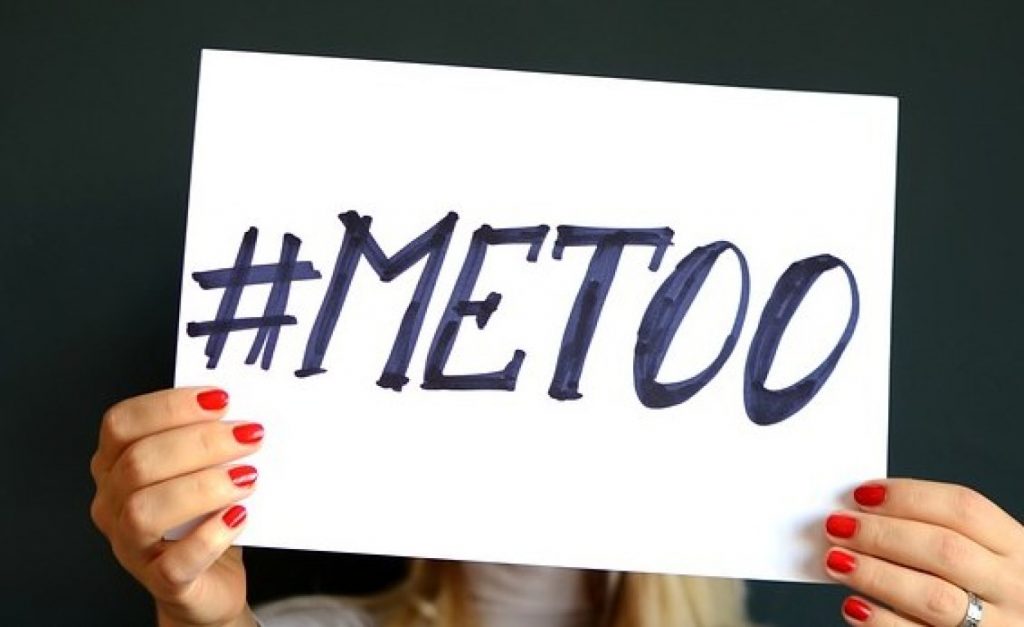
Last November, I went to the police headquarters in Niger state to seek approval for a protest. The rally for which I hoped to get formal permission and security was against sexual and gender-based violence. It had been convened by social development worker Fakhrriyyah Hashim and coordinated by writer Hassana Maina who, a few months earlier, had coined the hashtag #ArewaMeToo. Arewa is the Hausa word for “North”; #ArewaMeToo is northern Nigeria’s #MeToo movement.
As was explained in the letter I was to deliver to the police, the planned protest was to be held across eight states in northern Nigeria. Its purpose was to raise awareness of gender-based violence and call on those states’ governments to adopt the Violence Against Persons Prohibition (VAPP) Act. Among other things, that bill broadens the definition of rape from just penile penetration. It was passed at the national level in 2015 but has only been domesticated so far by three of Nigeria’s nineteen northern states.
“So, you people want to do a protest about rape?” said the first police officer to whom I explained this request. “What of men too? Don’t they suffer it too?”
“Actually, the word used in our letter is ‘persons’,” I clarified.
He proceeded with a long monologue on how fruitless our actions would be. “Your protest is not going to achieve anything,” he said finally in conclusion.
“We can try,” I offered.
“I like that word ‘try’,” he said. “It means you know you are wasting your time.”
Eventually, he led me to a bigger office where elaborate portraits of the national president and state governor hung on the walls. The officer saluted the huge man in uniform sitting behind the desk and left me with him. After exchanging greetings, I handed this more senior figure the letter and explained the purpose of my visit again.
“You are a feminist,” he said simply when I’d finished.
“I am,” I assured him.
“Wow. You are even proud of it,” he continued before launching into his own lecture. “You see, this thing you are trying to do is commendable, but you are going about it the wrong way. You people want to do protest because men are beating women and raping them. But that’s not how to go about it. If someone is beating you, you don’t do protest. You beg them to stop. Me, I have never beat a woman before because what will I even beat in her body? Unless I want to kill her. So you people should adopt a milder approach. Be speaking with men and educating them instead. And you women too should be dressing decently… ”
I listened to him ramble on for about an hour in the hope it would end with him agreeing to our request, but instead he concluded: “So that’s why I’m not going to grant you people permission or give you security.”
I stared at him.
“You can go ahead and have the protest, but you won’t have security.”
I stood up to leave.
“So can I take you out?”
I was sure I had misheard him. “Sir?” I asked.
He said it again. “There is a lodge near this place. We can do it there. I’ll be there on Saturday. I’ll give you my card. Just call me when you get to the gate.”
It took a while for me to absorb that he was asking me to sleep with him. I politely took his card and left.
How power resists progress
This heart-breaking and defeating experience is representative of much of the mainstream attitude towards movements against sexual violence. In Nigeria as across the world, powerful abusers and their defenders resist any advances that would hold them accountable. They work to maintain a culture of impunity for gender-based crimes, using their authority where they can as community leaders, lecturers, preachers, politicians or the police.
The police chief’s response to our protest therefore was perhaps not surprising. This was the same service whose officers in Abuja arrested women on the streets last year, accusing them of being sex workers before raping them in exchange for their freedom.
Nor was the reaction of the state’s politicians. When the rally went ahead a few days later, the speaker of the State House of Assembly came out to let us down, saying: “We have not domesticated the act because we don’t want to just import things from the [federal government], but we will look into it. We need to be sure that the act fits our society, but you people also need to take cognisance of the fact that women dress indecently… ”
Members of the public also enacted their resistance to the movement after the rally as people on social media circulated a picture of me from the protest holding a placard that said: “Your penis is not above the law”. On Facebook and Twitter, men described me as an apostate, no longer a Muslim, too vulgar, a prostitute, and more. One commenter thought I was shaming all of Arewa, citing himself as a better example of northern values even though he lives abroad. Others counselled parents on keeping their children safe, not from abusers and rapists and molesters but from activists like me.
Sadly, the reaction also took on more extreme edges. Sadiya Taheer, who was heading the movement in Sokoto state, was beaten up by police. A fellow activist, Idris Abbas, who filmed the assault on his phone was arrested and only set free after he deleted the video.
Prior to the rally, there had also been an attempt to undermine the protest by spreading the false claim that it was about promoting the LGBTQ community. There is nothing in the VAPP Act that relates to sexuality, but this was a well-calculated tactic aimed at tapping into widespread homophobia.
Seeds of success
This experience was a crash course in the ways the patriarchy acts to subvert change. But not all advocacy around sexual abuse is destined to fail.
In Bauchi, the rally was more successful. In Borno, the movement recently received a copy of a proposed amended bill of the state penal code and was invited by state lawmakers to attend a public hearing to make contributions to the draft. Among other things, the proposed bill increases the punishment for rape to death by hanging, deems corroborative evidence immaterial to rape trials and provides for the punishment of sexual harassment in schools and workplaces.
Meanwhile in Kano, where the protest was headed by Sani Muhammad, a passionate male ally of the movement, and involved religious and traditional leaders, meetings are now being had with members of the House to explore ways to accelerate the domestication of the VAPP Act. One lesson from this seems to be that for movements to be effective, they may need to find allies among people with different kinds of power such as male activists and traditional rulers.
These friends are out there. During the attempts to divert attention from the rally to my placard, for instance, Sheikh Muhammad Nuru Khalid, an imam from Abuja, released a video arguing that there was nothing wrong with my message. He expressed surprise that the uproar was not directed at the growing cases of sexual violence, but at a placard seeking to address it. His intervention did not stem the abuse, but it provided a certain kind of legitimacy to the rally.
Despite some setbacks, the movement against sexual violence in northern Nigeria is not giving up. Among other things, we’re now looking to partner with more allies like this and to hold meetings with state lawmakers. We know there will be plenty more resistance, but we will continue pushing for the domestication of the VAPP Act across northern Nigeria.

